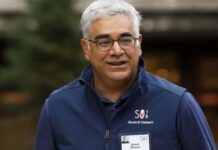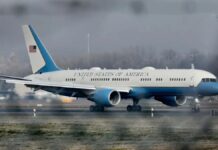Los Angeles: NASA engineers plan to send a miniature helicopter whirring just above the surface of Mars next month in an interplanetary aviation experiment that, if successful, would mark the first powered, controlled flight by an aircraft on another celestial body.
The U.S. space agency is comparing the Martian debut of its 4-lb (1.8-kg) solar-powered whirlybird, dubbed Ingenuity, with the Wright Brothers’ first sustained flight of a motor-driven airplane near Kitty Hawk, North Carolina, in 1903.
Paying homage to that feat, a tiny swath of wing fabric from the original Wright Brothers plane has been fastened underneath the helicopter’s solar panel and will go aloft with Ingenuity when it takes flight roughly 150 million miles from Earth.
Engineers at NASA’s Jet Propulsion Laboratory (JPL) near Los Angeles, where Ingenuity was designed and built, are aiming to launch the twin-rotor, four-legged helicopter on its maiden test flight sometime around April 8.
The helicopter was carried to the red planet last month strapped to the belly of NASA’s Mars rover Perseverance, which landed Feb. 18 on the floor of a vast basin called Jezero Crater after a nearly seven-month journey through space.
Perseverance, a robot lab on wheels, is designed primarily to seek out traces of fossilized microbial life from Mars’ ancient past and to collect rock specimens for return to Earth through future missions to Mars.
One of its first tasks is to transport Ingenuity to its test-flight zone, a flat area near Perseverance’s landing site. There the helicopter will be unloaded by remote control and set on the surface before the rover drives carefully away.
NASA has set aside 30 Martian days to unpack and prepare the helicopter for its historic, but modest, first spin. It will take off on a slow, vertical ascent to about 10 feet (3 meters), hovering for 30 seconds, rotating in the air and then descending to a gentle touchdown.
JPL plans to film the entire exercise with cameras mounted on Perseverance, parked a short distance away, and will beam images back to Earth hours later. Ingenuity is also equipped with two cameras of its own used for navigation.
The helicopter will undertake additional flights up to 16 feet (5 meters) high, assuming the initial foray unfolds as expected.
WRIGHT BROTHERS MOMENT
If successful, NASA hopes Ingenuity – a technology demonstration separate from Perseverance’s astrobiology mission – paves the way for aerial surveillance of Mars and other destinations in the solar system, such as Venus or Saturn’s moon Titan.
The immediate goal, however, is achieving “that Wright Brothers moment, getting powered, controlled flight, then adding mobility and adding other capabilities like any flight-test program,” said Bobby Braun, JPL’s planetary science director.
While Mars possesses just a third of the gravity to overcome as Earth, its atmosphere is just 1% as dense, presenting a special challenge for aerodynamic lift. To compensate, engineers equipped Ingenuity with rotor blades that are larger (4-feet-long) and spin more rapidly than would ordinarily be needed for an aircraft of its size.
The design was successfully tested in vacuum chambers simulating Martian conditions at JPL, but it remains to be seen whether Ingenuity will fly on the red planet.
The small, lightweight aircraft must also withstand punishing cold, with nighttime temperatures dropping as low as 130 degrees below zero Fahrenheit (minus 90 degrees Celsius), using solar power alone to recharge its batteries and keep internal components sufficiently heated.











